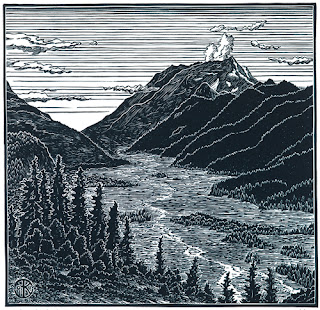Thursday, December 30, 2021
A la lengua española (al estilo de Kenneth Koch)
Tuesday, December 21, 2021
The Great Challenge of the Artist Is to Live
The great challenge of the artist is to live - to live and not succumb to madness, self-destruction and early death. This is because gifts of creativity, free-sparking imagination and stampeding idea flow are so often coupled with the internal challenges of emotional instability and vulnerability, mania and despair. I believe this duality can be managed and self-annihilation can be avoided for the artist. However, it is a formidable task and it is not often spoken about frankly and with practical insight as to how it may be done.
Friday, December 17, 2021
My Mental Afflictions
Wednesday, December 8, 2021
Poem-Songs
There is perhaps no greater untruth said about poetry than the one that declares - nobody likes poetry anymore. On the contrary, people like poetry more than any other form of language and they like it as much as they ever have. In contemporary mass society, this means song lyrics. Song lyrics are poetry. Most song lyrics are written in rhymed verses. And like every form of literature, the quality of song lyrics spans from the very good to the very bad and in every genre of music: rock, rap, folk, pop, country and beyond (among English language song forms). So, when people say poetry is very unpopular, they mean poetry printed in books and in journals and magazines.
Monday, December 6, 2021
The Music Man of Barf and Puke
I'd heard about him for some time and finally met him at a backyard theater piece in which I performed. It was late November, so people were walking around with blankets on their shoulders and we did the show in a crumbling 19th century shed in a sleepy neighborhood in Baltimore. I saw he was short, with a sour grin, but I never got the chance to look at him straight on. His head was always angled slightly askew, so it was like viewing a Picasso portrait - flat planes of sight, but never an actual full, contoured image. I said "met" him, but as I think of it, I never actually met Marc, though I tried to several times. "Hey, Dan, that's Marc," and I sought to catch his eye, but his head swiveled left, just as I looked at him to say hello. A woman was rehearsing a Psychedelic Furs song on the ukulele and it was as if she were singing from beyond the door of an open portal at the end of the galaxy or had seized the song from the top of a mountain in Taos, New Mexico, which is where she had driven in from to do the show. So, I was content to listen to her singing.
"Succession" - Father & Children
The Italian villa dinner scene between right wing media magnate Logan Roy and his son Kendall in the most recent episode of "Succession" is a very great piece of drama and a portrait of, well, of... humanity on the precipice in 2021. The background - Conniving, lost shitbag son Roman is sufficiently cynical to want to replicate the role of his "master of the world" father. Grasping-to-define-herself daughter Siobhan is trying to insert herself into the male-dominated, brutish media company of her father, but cannot seem to make it work for her or be fully accepted into the asshole boys club. Chronically directionless son Connor is making a quixotic run at the presidency as a harebrained way to define himself in late middle age. While son Kendall, after attempting to compete against his father in the media universe, is now negotiating with his him to get out, definitively, from the family business and cut all ties with his father. He realizes he is just not sufficiently a "killer" (as both Logan Roy and Donald Trump describe such characters) to exist in that world. He wants a payout and to cash out his shares and move on. He seems trapped between the proverbial rock and a hard place - unsure if he has any skills that will permit him to do something else, but sure the remaining in the world of corporate cut-throats is definitively not for him.
The Greatest Delusion & The Question of Happiness
Perhaps the greatest misapprehension of all is that which is that held by this society's "winners" - the financial, business and political elites: That life is game to be won. This turns the habitat of the planet into a foldable game board and actual people and other sentient beings into plastic pieces to be bought and sold with money - which, ironically, is that which is most real to such people. This misapprehension creates misery for most of us in the short term and will render the planet a barely habitable hellscape by the end of this century. It is a lethal delusion.
***
There is no true happiness when you know that the way we live is killing the planet.
Friday, December 3, 2021
An Originalist Speaks
I am an originalist. Washington Jefferson Madison Franklin received a code, from where I know not. They read it in the mists above the Potomac. Or heard it chiming in the smoky air of a Mason ritual. This code made them wealthy - this is the pursuit of happiness. I like the smell of old documents - parchment and ink suffused with the passage of time, though the document be eternal. They broke with the King because it was time to cross the mountains. Appalachia and the Ohio Valley would be ours. Damn the Indians to an un-sacred oblivion - for they know not what is destiny, what is destined. I am an originalist. I took a blood oath. I saw Washington's death mask in the Masonic Temple in Milwaukee, Wisconsin. The contours of his face, the look he had facing death: It was like he knew the slaves he had kept were waiting for him. Terror and absence. The words the founders wrote constitute a code. The constitution of an eternal form. There was talk in England of winding down the unique Southern project. The English did not understand what this country was meant to be. This land would not be tamed by the timid. Great works are not made without divisions between the high and the lowly. This is part of the code. Ten commandments were written in stone. Moses understood what it is to receive a code perched on the other side of a mountain - residing in the mouth of God. All one need to do is ask God to open his mouth and extract the words. 'Sixteen days in Georgia, I went out beyond the barn. Goose in the mill pond, cow's in the corn.'
woodcut by Tom Killon










